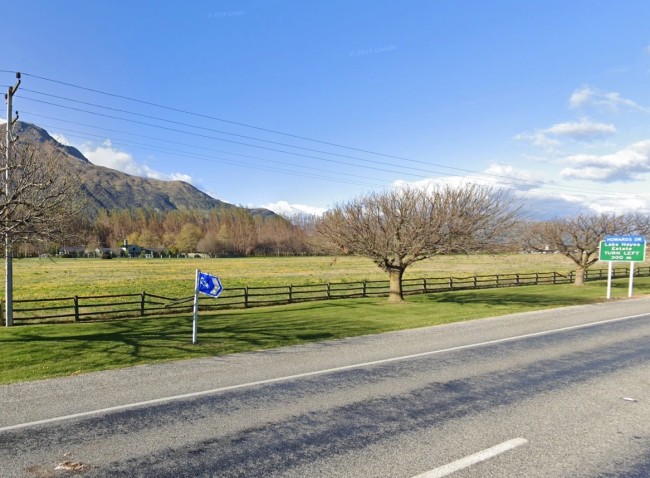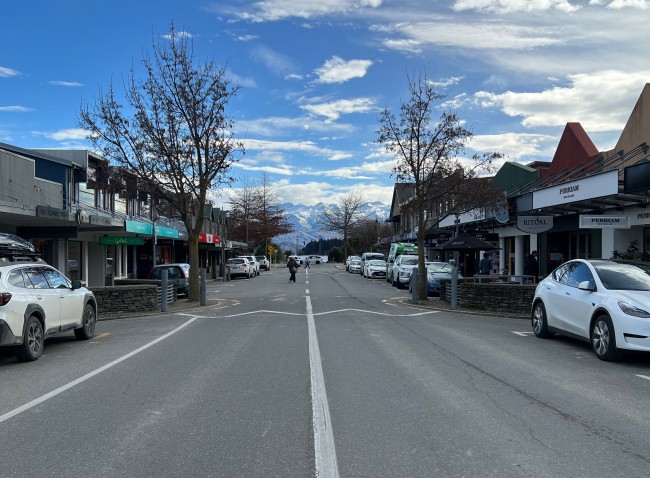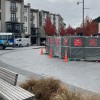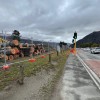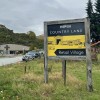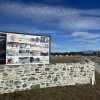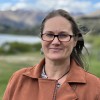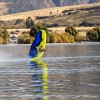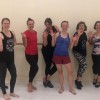
English teachers - "The vanguard of the battle against bullshit”
We are not sure of the collective noun for a conference of English teachers - an Education? - but a whole bunch of them met in Queenstown last week for their annual conference and Jennifer Smart has put together this report on what they got up to, what they learnt and how their key speaker, Toby Manhire, paid them the ultimate compliment by describing English teachers as "the vanguard of the battle against bullshit”. 10/10 to Jennifer for this piece.
During the holidays most would imagine English teachers diving into the stack of books consigned to dust during a busy term; curling up with a cup of tea and a foreign film or even penning a few words themselves. But no — in the July break many of us spend precious non-contact time at the annual NZATE conference, sharing good teaching practice and seeking inspiration for the second half of the year.
Last week Wakatipu High School played first-time hosts to the annual NZATE (New Zealand Association for the Teaching of English) Conference. Around 280 delegates descended on Queenstown to attend the three-day conference, planned around the theme of ‘Landscapes: Peaks & Perspectives’.

Change is in the air for New Zealand’s education system and our new school building is perhaps the most visible example of it. Our unique setting provided a relevant (and beautiful) backdrop for surveying the current ‘landscapes’ of our profession with colleagues and exploring the horizon of secondary teaching.
The recent announcement of an overhaul of NCEA, budget commitments of $1.2 billion for new schools and classrooms and the imminent release of the Tomorrow’s Schools Independent Taskforce report are just some examples of how the sands are shifting under teachers’ feet right now. Not that this is a bad thing: after all, it has been 30 years since New Zealand has carried out a comprehensive review of our schooling system.
With change and innovation locked in as central themes, the conference organisers (teachers from the English Departments at Wakatipu High School and Cromwell College) carefully selected keynote speakers to share their expertise. The meat-and-potatoes of English conferences were still present: the latest novels, reading strategies and the never-ending debate over whether teaching grammar is in or out. However, it was refreshing to hear a broader discussion of education in Aotearoa and where teaching is heading. A common thread emerged quickly, one that secondary teachers very much needed to hear: we should endeavour to do less, better.

An Education of English Teachers?
Rob Mill of NZQA announced further details of the upcoming “change package” for NCEA. Teachers welcomed the changes announced, including a simplification of the NCEA qualification (which will have many confused parents breathing a sigh of relief), a focus on fewer, larger standards by which to test student learning and higher benchmarks for literacy and numeracy. The room erupted into applause at the news that resubmissions will only be allowed at the Not Achieved/Achieved boundary from 2020. The resubmission policy has sat uncomfortably with those advocating a rigorous, internationally credible assessment. For teachers of ambitious and high-performing students like many of those in Wakatipu Basin, the change package was welcome news. The relevance of NCEA Level 1 was questioned by Mill who reminded us that “New Zealand is the only country in the OECD to have three years of high stakes assessment”. It seems that this will become more of an optional qualification in the future now that NCEA Level 2 is considered the minimum qualification for school leavers.
Toby Manhire, editor of independent online news outlet The Spinoff delivered a popular address, arguing that “whether it’s clickbait-saturated tabloid media, YouTube algorithms sending us down conspiracy slippery-slips, or malicious election-meddling via Facebook, the political-cultural-media landscape is saturated with bullshit.” And (music to our ears) he believes English teachers are “the vanguard of the battle against bullshit”. English teachers are charged with teaching students to navigate the world of “disinformation and misinformation” so his words struck many chords with the audience.
Between keynote addresses, teachers themselves ran workshops for their colleagues. With abstracts like: “Bringing out the best in our brightest: extending students in the English classroom"; “Queens, no Trumps: Pre and Post Trump readings of feminist speculative texts”; and “Creating micro stories: small fiction with big impact”, there was something for everyone. Even after years of attending these conferences, the energy that teachers pour into freely sharing their practice with colleagues never ceases to amaze.

The conference committee L to R: Millie Harris, Sonia Panapa, Amy Weir, Ruth Needham, Amanda Robinson Front: Katherine Beaumont, Jennifer Smart, Anna Smith. Not pictured: Marcella Robertson (Cromwell College) and Lucy Ford.
In a Conference-first, the organising committee curated a panel of eminent New Zealand writers to discuss the nature of creativity in New Zealand and how this can be harnessed and developed by teachers. Facilitated by writer and teacher Laura Borrowdale, the panel consisted of Bluff poet Cilla McQueen, Auckland playwright Albert Belz, Wellington novelist Branavan Gnanalingam and Northland fiction writer Annalesse Jochems. Delegates received plenty of thought-provoking tips on the creative process and the importance of using stories in which students can see themselves. And although teaching creativity may be impossible, Albert Belz assured us that “you can teach confidence.”
Other speakers included Dr Wesley Imms, a leading voice on ‘innovative learning environments’ and the teaching that goes on within them. Cathy Wylie shared findings from a major NZCER survey last year with some worrying results: only 37% of English teachers believe their workload is manageable and 28% say their workload is so high that they can’t do justice to all the students they teach. Teachers are unlikely to be surprised by these results as work load has been a major factor in the PPTA’s prolonged negotiations over the collective agreement. Hine Waitere left us with some challenging messages about the importance of culturally responsive classrooms and cartoonist Dylan Horrocks closed the conference with a wonderful trip through the narratives offered by role playing games like Dungeons & Dragons.
And of course no conference would be complete without a lavish dinner and slightly too much wine. Real Journeys and Walter Peak were the perfect hosts, and being able to share our backyard on the Earnslaw was a real privilege. Local businesses provided a generous selection of spot prizes to give away. We really are so lucky to live and work in Queenstown and sometimes it takes occasions like this one to remember it.
For Wakatipu High School’s English department, organising this conference was certainly the peak of our journey over the last 18 months. As Amanda Robinson, the Conference Convenor puts it “when people are in the thick of things, with 32 questionable Level 1 essays to mark before Period 5 – conference can seem a million miles away.” Nevertheless we can safely say that organising this one was a lot of fun, and we are proud to have emphasised Queenstown’s place on the map for the education sector.
Jennifer Smart
Head of English & Media Studies (Acting) at Wakatipu High School President of COATE (Central Otago Association for the Teaching of English)
Main Image: A group of conference English teachers at play - clearly no homework was assigned.











